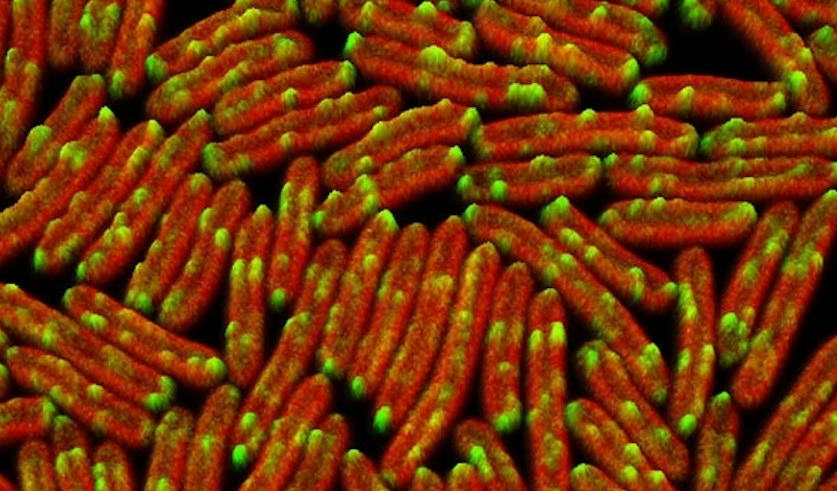Because of their prolific photosynthesizing, cyanobacteria have great potential for solar-powered biofuel production. To tap into that potential, researchers from Queen Mary’s School of Biological and Chemical Sciences recently became the first to visualize and control the “biological electrical switch” that dictates how electrons flow through the bacterium.
But what does manipulating electron flow have to do with biofuel? “In chemical terms, fuels are just sources of electrons,” explains Conrad Mullineaux, professor of Microbiology at Queen Mary and study co-author. “So where the electrons go in the cell is vital for fuel production.”
Where the electrons go in the cell is vital for fuel production.
To witness the electron movement, the team used fluorescent labeling to mark certain electron-carrying proteins. These proteins are an integral part of how the cell generates energy, and a better understanding of how they work will be essential to improving solar-powered biofuels.
A fluorescence micrograph of the cyanobacterium. The red is natural fluorescence from the photosynthetic pigments, and the green is the tag added to the electron carrier. These patches disperse when the conditions change, which is the biological electrical switch in action. Image courtesy Conrad Mullineaux.
The study found that altering the conditions of the bacterium, such as changing the light intensity, resulted in a dramatic redistribution of the proteins. This redistribution corresponded with a big change in electron direction.
“It’s rather like a familiar electrical switch,” says Mullineaux. “You press on it to change the position of the wires, and thereby change what the electrons do.”
He added: “At this stage, we’re just trying to understand what’s happening in the cell. But the potential is there to exploit the knowledge for biofuel production.”
Although biofuels are an excellent fossil fuel alternative, growing feedstock is often scrutinized for being resource intensive. “The problem is that [current production] processes are very inefficient,” says Mullineaux. “Huge areas of the planet would have to be devoted to biofuel crops in order to replace our current dependence on fossil fuels.”
To mitigate this concern, biofuel research often focuses on how to produce both energy efficient and cost-effective fuels from alternative feedstock. This research on cyanobacteria is another step towards reaching that goal.
“The imperative,” says Mullineaux, “is to develop photosynthetic organisms that will produce solar biofuels more efficiently. Then we can produce more from less.”
Originally appeared on the always awesome Ecomagination site.






Comments